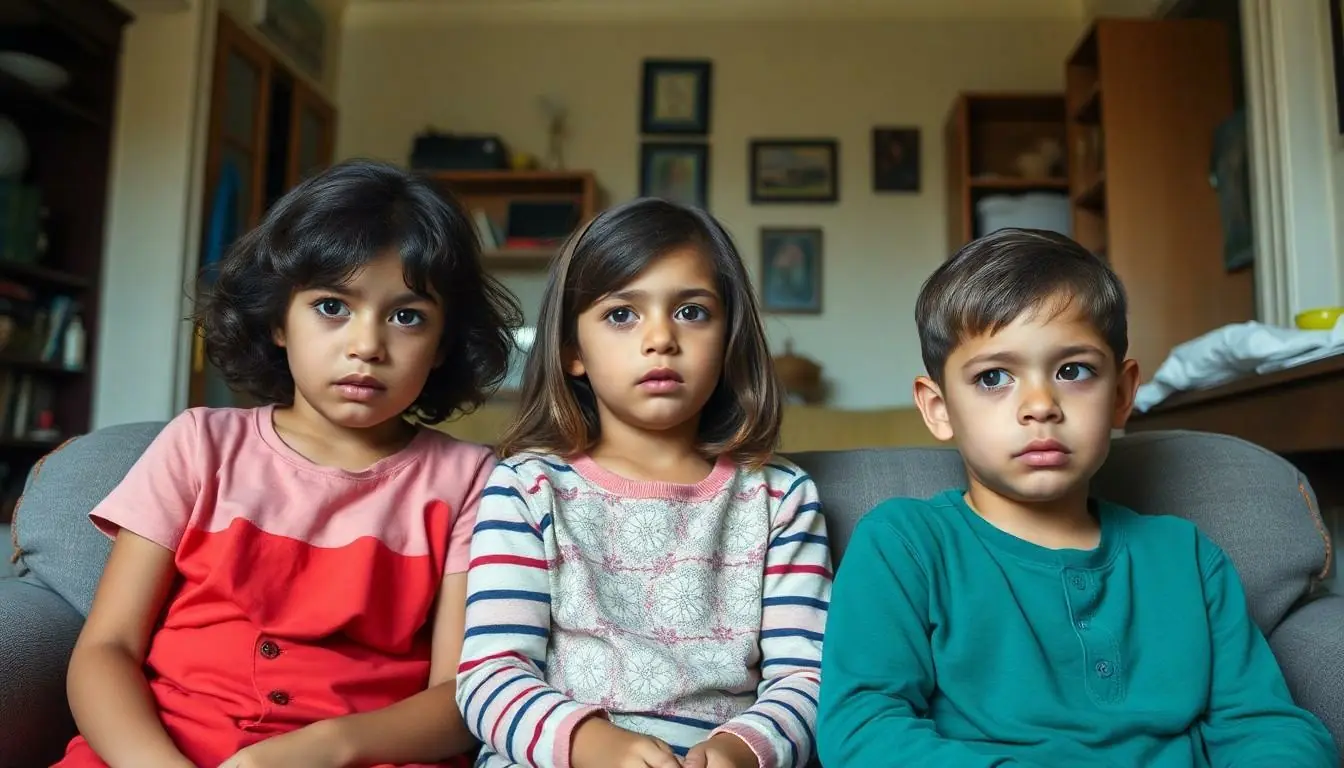Table of Contents
ToggleParenting can feel like a wild roller coaster ride, with ups, downs, and unexpected twists. While most parents aim to raise happy, well-adjusted kids, some inadvertently adopt negative parenting styles that can derail their best intentions. From the overly strict drill sergeant to the detached ghost parent, these styles can leave lasting marks on a child’s emotional well-being.
Understanding Negative Parenting Styles
Negative parenting styles encompass various approaches that contribute to unhealthy family dynamics and hinder child development. Recognizing these patterns aids parents in making positive changes.
Definition of Negative Parenting
Negative parenting refers to behaviors that result in detrimental effects on a child’s emotional and psychological well-being. Examples include overly strict discipline, emotional unavailability, or neglectful attitudes. These patterns often stem from parental stress or unresolved personal issues. Parents who exhibit these styles frequently struggle to engage positively with their children. Consequently, the atmosphere in the home can become punitive or indifferent, creating challenges for healthy child-rearing.
Impact on Child Development
Negative parenting significantly influences a child’s development. Children raised in such environments often experience increased anxiety and low self-esteem. Exposure to harsh criticism or lack of support can stunt emotional growth and hinder social skills. Studies show that these children may develop trust issues in relationships and display behavioral problems in school. Interaction with parents shapes how children view themselves and others. As a result, negative parenting can lead to long-term consequences affecting education, relationships, and overall quality of life.
Types of Negative Parenting Styles
Negative parenting styles manifest in various forms, each leading to distinct detrimental effects on children. Understanding these styles is essential for recognizing their impact.
Authoritarian Parenting
Authoritarian parenting involves high demands with low responsiveness. Parents in this style enforce strict rules and expect obedience without offering emotional support. Children raised under such conditions often face anxiety and low self-esteem. Communication remains one-sided, meaning children struggle to express their feelings. Research indicates that these children may develop difficulties in social settings, unable to form trusting relationships. Ultimately, authoritarian parenting stifles creativity and independence.
Neglectful Parenting
Neglectful parenting reflects a lack of emotional involvement and attention. Parents may prioritize their interests over their child’s needs. Children in these environments experience feelings of abandonment and low self-worth. Research has shown that neglectful parenting leads to higher risks of behavioral problems and academic struggles. Without guidance and support, these children often exhibit low motivation and difficulty forming healthy attachments. Relationships and emotional skills may develop inadequately, affecting long-term outcomes.
Permissive Parenting
Permissive parenting is characterized by high responsiveness but low demands. Parents adopting this style provide few rules, leading to a lack of structure. Children often receive excessive freedom, which can result in self-discipline issues. These children may struggle with authority and exhibit impulsive behaviors. Studies indicate that permissive parenting increases the likelihood of problematic behaviors in adolescence. Over time, children may not develop the necessary skills to navigate challenges, hindering their overall development.
Consequences of Negative Parenting Styles
Negative parenting styles lead to numerous consequences that affect children’s development and well-being. Emotional health and behavioral patterns often show signs of distress due to these unhealthy environments.
Emotional Effects on Children
Children exposed to negative parenting styles frequently experience elevated anxiety levels. They may struggle to express their emotions or form secure attachments, feeling unworthy of love and support. Low self-esteem often develops, stemming from harsh criticism or neglect. Feelings of worthlessness can permeate their self-image, adversely affecting friendships and social interactions. Depression might arise, as children internalize their negative experiences, which can lead to further emotional struggles in adolescence and adulthood.
Behavioral Issues in Children
Behavioral problems commonly manifest in children from negative parenting backgrounds. These children might exhibit defiance or aggression as they navigate their emotional turmoil. Impulsive actions often occur due to a lack of structure, which can lead to difficulties in school environments. Additionally, academic struggles frequently surface, based on their inability to concentrate and follow routines. Relationships with peers can become strained, as they struggle with trust or accept authority. Over time, these behaviors contribute to a cycle of dysfunction, hindering healthy development.
Strategies for Improvement
Improving parenting approaches can enhance family dynamics and promote healthier child development. Identifying negative patterns and adopting positive techniques serves as a foundation for change.
Recognizing Negative Patterns
Identifying harmful behaviors is the first step toward improvement. Parents must observe their reactions to stress and their child’s behavior. Acknowledging moments of harsh discipline or emotional withdrawal directly impacts self-awareness. Reflecting on these interactions allows parents to understand how their actions affect their children. Notably, awareness leads to proactive strategies that create a nurturing environment. Addressing emotional detachment can significantly reduce feelings of abandonment in children.
Implementing Positive Parenting Techniques
Adopting positive parenting techniques fosters healthier relationships. Encouraging open communication enables children to express feelings freely. Positive reinforcement highlights desirable behaviors, making children feel valued. Setting clear expectations provides structure, which children need for security. Engaging in quality time together strengthens bonds and promotes emotional connection. Developing empathy helps parents understand their child’s perspective, allowing for more responsive interactions. By applying these techniques, parents cultivate a supportive home that nurtures emotional and social growth.
Conclusion
Negative parenting styles can create a lasting impact on a child’s emotional and psychological well-being. Understanding these detrimental approaches is crucial for parents seeking to foster healthier family dynamics. By recognizing their own behaviors and the effects they have on their children, parents can take proactive steps to change negative patterns.
Implementing positive parenting techniques not only nurtures a child’s development but also strengthens the parent-child bond. With empathy and open communication, parents can create a supportive environment that promotes emotional growth. By striving for a balanced approach, families can break the cycle of dysfunction and pave the way for happier, healthier futures.








